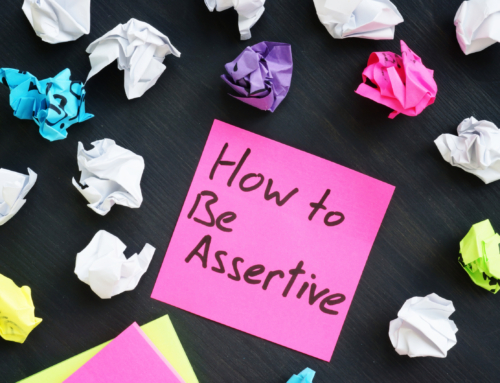What do you want to be and why?
What do you want to be when you grow up? The universal question we were all asked or have asked ourselves.
I think it all comes down to SIX things:
- Time
- Focus
- Fit (personality, values, behaviour)
- Opportunity
- Passion
- Goals
We are all unique in some way so the emphasis, priority and interpretation of these SIX factors will be different for all of us. The combinations and possibilities are endless. However, many people struggle to find an alignment with any of these SIX, even as they drift within and out of our control.
Time
A young person leaving school may have a time horizon of not more than a month, therefore their career focus is based on what’s happening right now and usually runs from paycheck to paycheck. As we get older our focus on time changes, and some of us recognise that working for something now will provide a benefit sometime in the future. In saying that I still have friends in their 60’s who are working from pay cheque to pay cheque and there are also kids still in school who are looking long term and making plans for themselves a long way into the future. Our time horizon is unique to us and our stage in life and has a big impact. What is your time horizon? Over what time frame do you make decisions? It does change as we get older.
Focus
I remember some kids at school who were so wrapped up in an activity that they could think of nothing else – either playing a musical instrument, fascinated by biology or a particular hobby. These kids invariably either followed that focus and made a career from it or used their ability to focus to build a long-term career. I have a friend from primary school who thought about nothing but space, he’s now an astronomy professor at Harvard and helped build the Hubble telescope. Sometimes we discover our focus by accident, sometimes its hidden under something else, what holds your focus and why? Is there a career there?
Fit
Our personalities are individual to us all and making sense of where you ‘fit’ in the world is important. Some personality types lend themselves to be extraverted and gregarious where others are more studious and introverted and then there is everything in between. Where we feel we ‘fit’ starts to guide our vocation decisions. Some may be drawn to the certainty of government roles where others may be draw to the cut and thrust of startups and continuous change and innovation. Organisation culture and values are important, feeling part of a team and a sense of belonging is important. Have you taken the time to consider your values and what working environment best suits you?
Opportunity
I’ve come from a long line of Mechanical engineers, my great grandfather moved to WA to run the Massey Ferguson plant that built the Kalgoorlie pipeline, my grandfather’s middle name was Ferguson, after the company founder! Being surrounded by engineers meant that I was almost pre-programmed to make this an early career choice. To continue the story, I had the opportunity to change my career and move into my current role, which is much more suited to my skills and personal preferences, it gives me more of the intrinsic rewards I’m looking for in life. Opportunities come and go, sometimes we grasp them, sometimes we miss them, but they are a part of our ‘career’ decision making. Did you fall into the role you’re in because it was easy or expedient? On the other hand, have you turned your back on great opportunities that have presented themselves to you? It’s about being aware and making good choices.
Passion
Similar to focus, but a little more. It’s the love of something to the point of overcoming any obstacle, even qualifications or IQ. I have seen high school dropouts become enormously successful through that passion to succeed at something. Having a passion is a great motivator for success. What are you passionate about? What fires your engine?
Goals
Our goals vary for each of us, and like everything else can change over time, or not. For some people the goal may be wealth and how they achieve that is just a means to an end, for others it is to add meaning to their lives or the world, to make a difference or just to enjoy a happy family life. Others have focused on an early retirement. Some people do not have a goal and move from one job to the next without purpose – nothing wrong with this if it’s a conscious choice and the consequences are accepted gracefully. Without a goal the choices you make may not align you and provide progression.
When we look at the mix of SIX that goes into anyone’s ‘Career’ it’s not hard to see why people may stumble, end up in jobs they hate or feel unfulfilled later in their lives. Time moves on and our attitudes, self-understanding, understanding of our world and our contribution changes endlessly. Not paying attention to the movement of time and finding yourself past the point of no return is a depressing but avoidable outcome.
Some people find they cannot acknowledge even one of the SIX points raised here and flounder terribly for years.
Finding your ‘Career’
Look for that one entry point and pursue it and that will open up more opportunities for you. Start with a direction with the full knowledge that it can change, and it will change, and that is OK.
If you are still deciding what Career you want, take a step back and recognise that, for most of us, it isn’t a fixed ‘career’ but an adventure of excitement, wonder and diversity – the journey is what matters. Being open to the entry points can start you on a path that may end up as an outcome or an achieved goal, but it is only locked in if you make it so.
Keep an open mind and enjoy life’s adventure.
For any assistance with your career journey contact info@careerlife.net.au or (08) 6336 8620.














Dr Susan Roberts says: